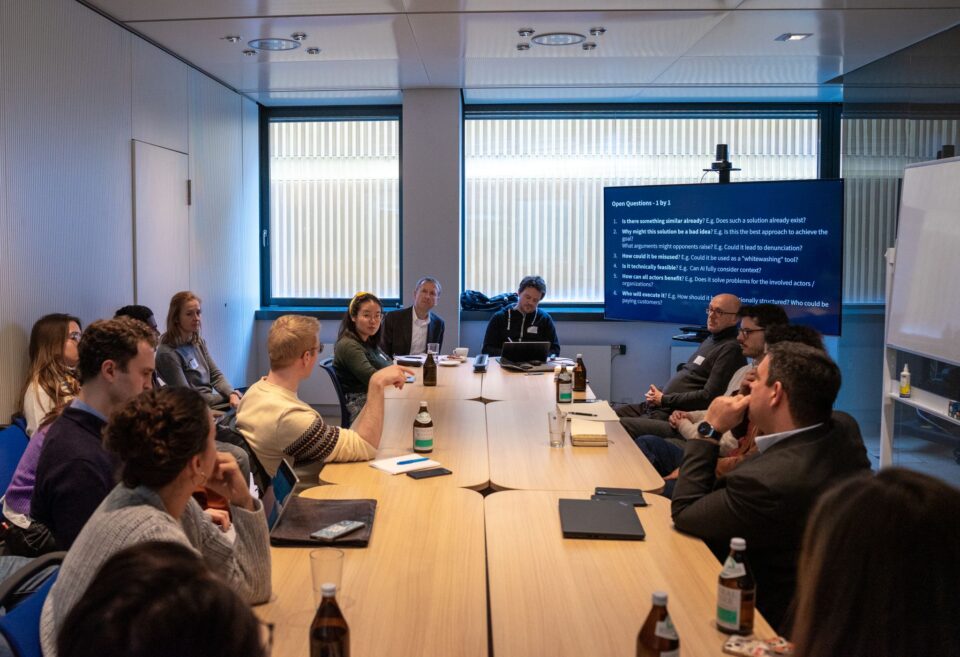TUM Think Tank
Where today's societal challenges meet tomorrow's technological excellence.
As digital technologies increasingly exhibit agency-like properties, the boundaries between human and artificial agency are becoming blurred—raising fundamental questions about institutions, identity, and governance. Despite rapid advances in AI, there is a growing need for robust conceptual frameworks that can help us understand how artificial agents shape, challenge, and transform complex social systems.
This Fellowship of Practice project at the TUM Think Tank aims to develop an interdisciplinary approach to artificial agency, drawing on evolutionary theory, complexity science, institutional economics, and the philosophy of technology. It investigates how artificial agents interact with human systems and how this co-evolution affects institutional dynamics, identity formation, and societal resilience.
Through theoretical groundwork, empirical case studies, and future-oriented policy development, the project seeks to provide practical governance tools and ethical frameworks for navigating the age of autonomous systems.
Project Focus Areas
- Theoretical Foundations Development of a conceptual framework distinguishing forms of agency (human, institutional, artificial) and their interactions within complex adaptive systems
- Empirical Analysis Case studies exploring how artificial agents impact institutions such as markets, legal systems, and democratic processes, as well as how they influence human identity formation
- Policy & Governance Creation of future scenarios, policy briefs, and ethical guidelines to support institutional design and decision-making in human-machine systems
The project will contribute to several of the TUM Think Tank’s key initiatives, including the Law & Tech Lab, the Government Innovation & Technology Initiative, the Civic Machines Lab, the Quantum Social Lab, and the Hemispheres Initiative, as well as cross-lab working groups in our international research network.
About the Fellow
 Nicklas Berild Lundblad is a globally recognized expert in technology policy and AI governance with over 25 years of experience at the intersection of technology, society, and public affairs.
Nicklas Berild Lundblad is a globally recognized expert in technology policy and AI governance with over 25 years of experience at the intersection of technology, society, and public affairs.
Currently he is working with research, advice and investing. He most recently served as a Strategic Advisor at Google DeepMind, he has previously held leadership roles in public policy and government affairs at DeepMind, Google, and Stripe. As VP of Public Policy for EMEA at Google, Nicklas led teams navigating complex regulatory environments and worked closely with high-level stakeholders including EU institutions and national governments. He also founded Google’s policy foresight function.
He holds a PhD in Informatics with a dissertation on "Law in the Noise Society" and academic qualifications in ICT law, privacy, and philosophy. His scholarly interests include the governance of emerging technologies, the nature of complexity in regulatory systems, and the philosophical implications of artificial intelligence.
In addition to his policy work, Nicklas is the author of four books on technology and society, a former Adjunct Professor at KTH, a member of the Royal Academy of Engineering Sciences, and an Eisenhower fellow.
Fellowship of Practice at the TUM Think Tank
The Fellowship of Practice fosters meaningful exchange between academia and society by embedding experienced practitioners in the work of the TUM Think Tank. Fellows collaborate with our labs and research initiatives, bridging theory and practice to address pressing societal challenges. The program supports evidence-based policymaking, interdisciplinary collaboration, and real-world impact.
TL;DR
Nicklas Berild Lundblad joins the TUM Think Tank as a Senior Fellow of Practice to develop a novel interdisciplinary framework for understanding how artificial agency transforms institutions, shapes human identity, and increases social complexity. Drawing on evolutionary theory and complexity science, the project will produce theoretical insights and practical governance approaches for societies navigating the emergence of artificial agents. This collaboration aims to bridge theoretical understanding with actionable policy guidance, contributing directly to more resilient and adaptive institutional designs in an era of rapidly evolving artificial agency.








